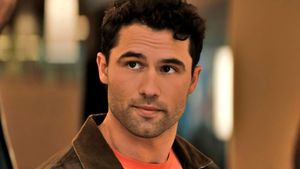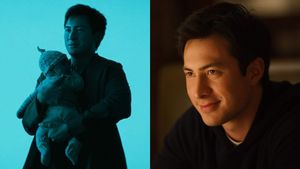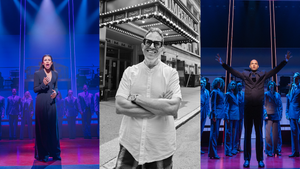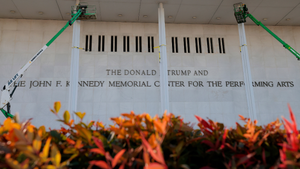The fate of a
long-awaited Vatican document on whether gay
men should be barred from the priesthood appears
uncertain, with one senior Vatican official suggesting
it might have been shelved while top American clergy
say they understand it will be coming out soon. The
future of the document has been further muddied because of
the upcoming Vatican evaluation of U.S. seminaries and
their admissions criteria--visits that were
ordered up in the wake of the clerical sex abuse
scandals and criticism that gay priests were to blame.
The Vatican press
office announced in November 2002, at the height of the
sex scandal, that the Congregation for Catholic Education
was drawing up guidelines for accepting candidates for
the priesthood that would address the question of
whether gays should be barred. The document has been
controversial from the start, and there has long been
speculation that it may never be released because of
its sensitive nature. Some priests have said the
document is sorely needed, while others say it will do more
harm than good, antagonizing existing gay priests and
driving others underground.
A senior Vatican
official said recent news reports that the document was
in the hands of Pope Benedict XVI were "completely wrong"
and that there was no news on the
topic--implying that the document may have been
shelved, at least for now. "There is nothing new," the
official said, adding that the Vatican last issued a
document on the topic eight years ago and has not done
anything since.
A 1997 letter
from the Congregation for Divine Worship and the Discipline
of the Sacraments reads, "Admission may not take place if
there exists a prudent doubt regarding the candidate's
suitability." It does not specify that homosexuality
constitutes a "prudent doubt," but a senior American
official at the Vatican, the Reverend Andrew Baker,
has written that it does.
The chairman of
the U.S. bishops' committee on priestly formation, Bishop
John Nienstedt, said he had been told by the Congregation
for Catholic Education that the document would be
coming out soon, and other American churchmen said
they too were expecting it. "I don't know where the
document is," Nienstedt said in a phone interview Wednesday.
"My understanding from the congregation was that it
would come out soon."
But with the
Vatican-ordered visits of U.S. seminaries starting at the
end of September, the document's fate appears even more
uncertain. Pope John Paul II called for the seminary
visits in 2002 as another response to the sex abuse
scandal. Teams of U.S. bishops and seminary personnel
chosen by the Vatican will visit all 229 U.S. theology
schools, seminaries, and other training institutions,
interviewing seminarians and faculty members and
reviewing, among other things, the schools' admissions
criteria.
The teams will
then report back to the Congregation for Catholic
Education, which will follow up by drafting an "overall
evaluation" for bishops and superiors of religious orders,
the U.S. Conference of Catholic Bishops said in a
statement announcing details of the visits. The
Reverend John Canary, rector of the largest U.S.
seminary, St. Mary of the Lake in Mundelein, Ill., said in
an interview he did not think the document would be
issued before the visit begins, since new information
might be obtained during the evaluations.
Bishop Thomas
Gumbleton, auxiliary bishop of the archdiocese of Detroit,
who has written in favor of gays in the priesthood, said he
too is awaiting the document but cautions that it
might be rushed out before the visits begin to
"preempt" any softening of the policy that might
emerge. "Those who want this restriction in would try to get
this thing out before the evaluations begin," he said
in a phone interview.
Vatican
congregations have been studying the issue of gay priests
for years, but the matter gained renewed attention in
the wake of the sex abuse scandal. Most of the victims
were adolescent boys. Experts on sex offenders say
there is no credible evidence that gay men are more
likely than straight men to abuse children, but several
church leaders argued that gay clergy were to blame
for the scandal.
Those pushing for
a ban on gay priests often cite two Vatican documents
that make clear that gays should not be ordained: One,
issued in 1961, reads: "Advancement to religious vows
and ordination should be barred to those who are
afflicted with evil tendencies to homosexuality or
pederasty, since for them the common life and the priestly
ministry would constitute serious dangers."
In 2002, Cardinal
Jorge Arturo Medina Estevez, then prefect for the
Congregation for Divine Worship and the Discipline of the
Sacraments, advised against allowing gays in the
priesthood in a letter that was published in the
congregation's publication Notitiae. He said their
ordination would be "absolutely inadvisable and
imprudent, and from the pastoral point of view, very
risky." That letter had been expected to form the basis of
the document from the Congregation for Catholic Education,
but in the years since it was published, Vatican
officials have said the eventual policy would be more
nuanced. (AP)




































































Charlie Kirk DID say stoning gay people was the 'perfect law' — and these other heinous quotes